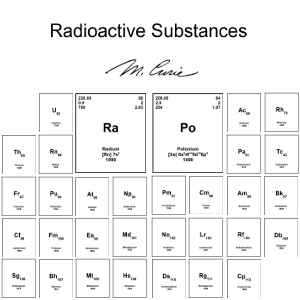Radioactive Substances
Marie Curie, born in Warsaw in 1867, was a Polish-French physicist and chemist famous for her work on radioactivity. She was a pioneer in the field of radioactivity and the first person honored with two Nobel Prizes - in physics (1903) and chemistry (1911). The risks of working with strongly radioactive materials were not known at that time, and she eventually died in 1934 from an illness likely caused by radiation poisoning.
Radioactive Substances is the thesis of Marie Curie, presented to the Faculté de Sciences de Paris in 1903, and subsequently published in "Chemical News" vol 88, 1903. Marie Curie gives a detailed description of her research on radioactive substances carried out at the Sorbonne. She details how she obtained the two new elements radium and polonium from pitchblende, explains her numerous experiments and presents measurements of all kinds. (Summary by Availle)
Genre(s): *Non-fiction, Astronomy, Physics & Mechanics, Chemistry
Language: English
Keyword(s): physics (47), chemistry (30), radioactivity (3), Marie Curie (2), phd thesis (1), experimental chemistry (1), particle physics (1)
